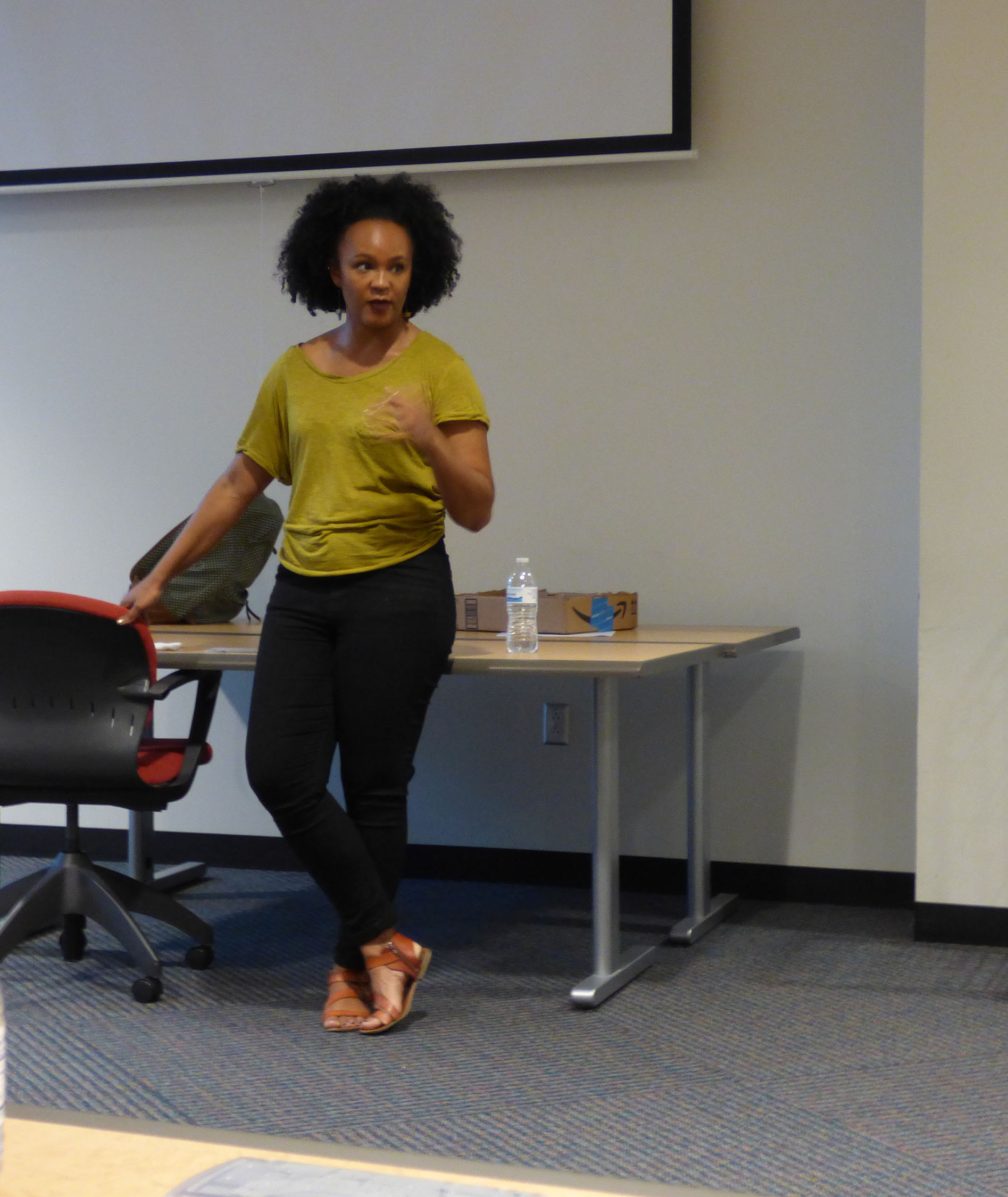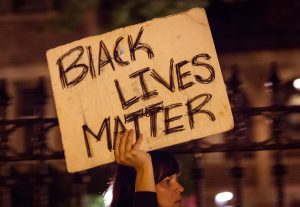
UHCL provides support with ‘The Black Experience: An Open Conversation’

“No one should have to cry alone in their office,” said Annette Collins, communication major.
“The Black Experience: An Open Conversation” was based on this thought. UHCL Black Students Association (BSA) and Intercultural Student Services (ISS) are hoping to provide support by holding events such as “The Black Experience” to give students, staff and faculty members a space to share their feelings.
The need to have this kind of event right now comes from multiple national incidents such as the death of Trayvon Martin and Sandra Bland that have left many feeling emotionally drained, confused and angered.
Andrea Baldwin, lecturer in communication, was the guest speaker at the event. Baldwin explained why so many people feel scared and alone.
“This year is real,” Baldwin said. “This is tough in a way that we have never seen before, and there are multiple reasons. We have such great access to media so we can find out about things in real time, in a way that we probably couldn’t do in the ‘60s or ‘70s. You can find information up to the minute. But, we know that can take a toll on our bodies. Sometimes that trickle down is too much for us.”
Baldwin also shared why she constantly thinks about Sandra Bland. She explained that shortly after Bland was pulled over, Baldwin had to travel from Southern Illinois to Texas and her friends and family kept checking on her, asking if she wanted to fly instead drive.
“The Black Experience” is also a way to prove to UHCL students that changes are being made to provide support for each student.
“As we change and are filling out our shoes as a four-year institution, since we were previously just an upper level [institution], we need to start thinking, ‘are we providing the same kinds of conversations, dialogue and awareness that you would get at any other four institutions,’” said Erika Garcia, coordinator of intercultural student programming. “I think that it is important for them to connect with each other as part of leaders in the same cause. And then my goal is to also get presidents [from] the different multicultural organizations to also get in touch with each other. They can learn from each other regarding their leadership and what they can do different in their respective student organizations.”
UHCL’s total enrollment headcount for the Fall of 2015 was nearly 9,000 students. Approximately 700 of those students identified themselves as African American. For that semester, black students made up 8.7 percent of the total enrollment population at UHCL. This percentage has remained consistent throughout the years. Fall 2013’s black student population was 9.6 percent, and Fall 2014’s black student population was 9.1 percent.
The percentage of black faculty members at UHCL is smaller than the black student’s percentage. Black faculty members have made up around 5 percent of the faculty population since 2011. Fall 2015’s black faculty population was 5.4 percent.
Underrepresentation of minority students and faculty is not exclusive to UHCL; minority enrollment is underrepresented on a national level. A study by Stanford University’s Center for Education Policy Analysis found that since 2004, white students are more likely to enroll in colleges than black students. The study also points out that racial inequality on college campuses has increased from 1982-2004.
Although there may be times when a student or faculty member feels alone due to the lack of diversity, the Intercultural Student Services and the Black Students Association wants to remind the UHCL population that there are people on campus who have feelings and thoughts similar to theirs.
“I think it’s important to form a community,” Garcia said. “BSA and [ISS] is a good outlet for that. We have plenty of students who come in with concerns on how to align themselves with different organizations. Another thing I would advise to any student is to seek out mentors.”
Kyrstyn Bilbo, president of the Black Students Association, also shared the changes she would like to see in the future that could come from events such as this. Bilbo hopes to have more discussions and gatherings that frequently occur, and not just when there is violence in the media. She also wants the UHCL community to know that there is an organization on campus that wants to provide support to everyone.
“It’s also open to anyone, not just black students; we would love allies in BSA,” Bilbo said.
Collins also shared what she hopes to see in the future at UHCL.
“I would like for [‘The Black Experience’] to become an ongoing BSA event, and to provide a safe space to come together like we did tonight,” Collins said. “We would like to gain allies. We would like to be represented on campus.”
Students who feel isolated and alone are invited to reach out to Intercultural Student Services or the Black Students Association. ISS can be reached by email at iiss@uhcl.edu or by phone at 281-283-2575. If interested in BSA, Bilbo can be reached at Bilbo@uhcl.edu. UHCL counseling services are also available to all students and can be reached at 281-283-2580.
